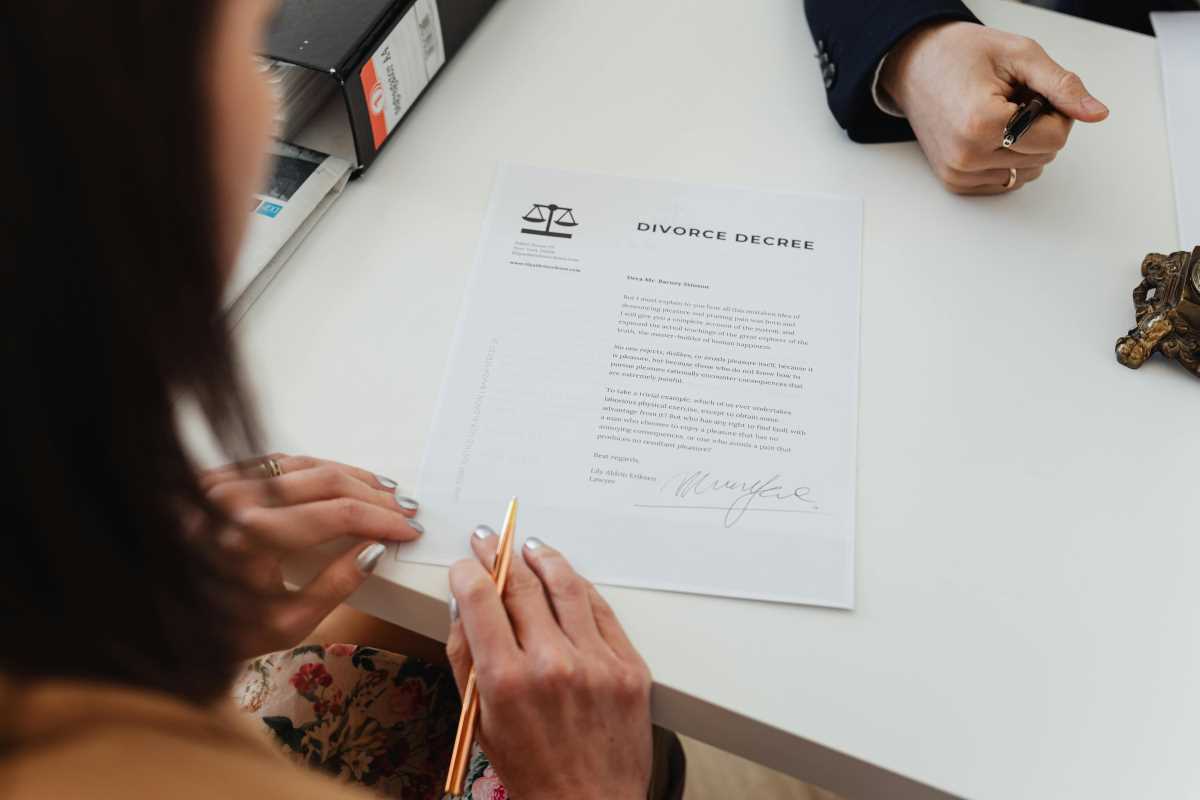Choosing the right divorce lawyer can have a major impact on how your case unfolds and the outcome you achieve. Divorce involves significant emotional and financial stakes, and that's why a lot of people choose to hire a divorce lawyer to make sure it goes smoothly. A skilled attorney can guide you through the complexities of dividing assets, arranging custody agreements, and advocating for your best interests. Let's explore these practical steps, key considerations, and the qualities to look for when selecting the right lawyer to handle your divorce. With so much at stake, knowing what to prioritize helps you make an informed decision that supports your needs.
Determine What You Need
Every divorce case is unique, so figuring out what you need will point you toward a lawyer with the right expertise. You'd want to choose an attorney with significant experience in custody matters if children are involved. Cases involving significant assets or businesses typically require someone skilled in high-net-worth divorces.
Consider whether your divorce is likely to be contested or uncontested. A contested divorce, where spouses disagree on terms, requires a lawyer experienced in litigation. On the other hand, an uncontested divorce may benefit from an attorney who prioritizes mediation or collaborative methods to save time and costs.
Research Local Options
Start by searching for family law attorneys near you. Local directories, referrals from friends or family, and online searches are valuable starting points. Websites like the American Bar Association (ABA) can help you locate licensed attorneys in your area. Pay attention to reviews, professional profiles, and client testimonials, as they often reveal important insights into a lawyer’s reputation and reliability.
Every state has specific laws regarding divorce, including residency requirements, property division principles, and child support guidelines. A local attorney who understands these nuances helps your case meets state-specific legal standards.
Look for Relevant Experience
Years of experience alone do not guarantee quality, but they do matter when paired with a relevant focus. A family law attorney with at least several years of experience handling divorce cases is generally better equipped to manage complex legal issues. Ask about the percentage of their practice dedicated to family law. Lawyers specializing exclusively in this area are better positioned to address intricate aspects of your case, compared to general practitioners.
Experience in courtrooms may also be valuable. If your case seems likely to go to trial, a lawyer who has experience presenting cases before judges is a must. Alternatively, success in out-of-court negotiations could signal strong skills in securing settlements without prolonged litigation.
Questions to Ask During Consultations
Most lawyers offer initial consultations, where potential clients can discuss their case and learn how the lawyer would approach it. Use this time to evaluate their expertise and compatibility. Asking the right questions lets you gauge whether the attorney suits your needs. Some key questions include:
- What percentage of your caseload involves divorce or family law?
- Have you handled cases with circumstances similar to mine?
- How do you approach custody disputes, property division, or spousal support negotiations?
- What strategy would you recommend for my situation?
- What are your fees, and do you offer payment plans?
Transparency during these discussions is a positive sign. An attorney willing to explain their processes, billing structure, and expectations demonstrates professionalism and accountability.
Evaluate Communication Style
Choosing a lawyer who communicates clearly and consistently can reduce stress throughout your case. Look for someone who listens carefully, addresses your concerns, and explains legal terms in a way that makes sense. A good lawyer avoids unnecessary jargon and makes sure you understand the implications of every decision.
Availability is also really important to discuss. Divorce can involve unexpected developments, so working with an attorney who is responsive to calls, emails, or urgent inquiries will make a significant difference. During consultations, note how promptly they respond to your questions and whether they seem accessible.
Understand Costs and Payment Options
Divorce litigation can become expensive quickly, particularly if disputes drag on. Lawyers typically charge using hourly rates, flat fees, or retainers. Understanding their billing structure helps you plan financially and avoid surprises down the road. Always ask for clear documentation outlining fees for court filings, consultations, or additional services.
Consider discussing cost-saving strategies with your lawyer. Preparing documents in advance or using paralegals for certain tasks may reduce expenses. Each lawyer’s approach to costs will vary, so transparency can help align with your budget.
Assess Their Negotiation Skills
Reaching favorable divorce settlements often relies on effective negotiation. Lawyers with strong negotiation skills can help you achieve agreements on key issues without resorting to prolonged court battles. Avoid attorneys with overly aggressive or adversarial approaches, as these tactics may worsen disputes and escalate tensions.
Successful negotiations prioritize mutual respect and finding practical solutions. During initial interactions with the lawyer, observe how they balance assertiveness with diplomacy. Their ability to collaborate while advocating for you can set the tone for productive discussions throughout the divorce process.
Observe Red Flags
Not all attorneys operate with the same level of professionalism or ethics. Signs such as missed communication, vague answers about fees or processes, or lack of empathy may indicate potential issues. Trust your instincts during consultations. If something about the interaction feels off, continuing your search may lead you to a better fit.
Avoid lawyers who make unrealistic guarantees about outcomes. Divorce cases are inherently uncertain, so overpromising results is dishonest and unprofessional. The right attorney will focus on providing realistic projections based on facts and expertise.
Explore Alternatives to Litigation
Litigation is not the only way to resolve a divorce and, in many cases, may not be the best approach. Mediation or collaborative divorce offers less confrontational paths that often save time and money. If this interests you, look for attorneys experienced in these alternative dispute resolution methods. Some lawyers hold additional certifications in mediation, highlighting their ability to negotiate effectively out of court.
Mediation may not suit every case, especially those involving power imbalances or uncooperative parties, but it has proven successful in many divorces where both spouses aim to finalize terms amicably.
This information does not constitute legal or financial advice. Please consult a qualified professional for advice tailored to your specific situation.
 (Image via
(Image via





